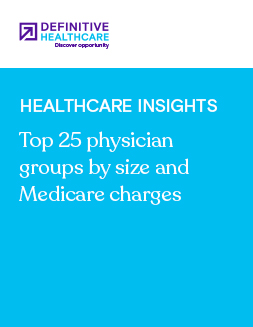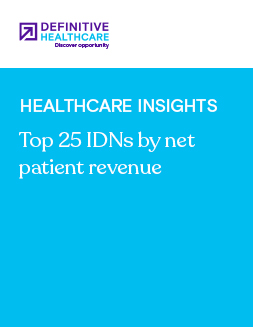Healthcare Insights
15 most common dementia medications
Dementia, an overall term for a range of memory loss and thinking ability conditions such as Alzheimer’s disease, affects over 55 million people worldwide. With no current cure, dementia treatment includes managing symptoms through occupational therapy, behavior and environment changes, and medication.
Using data from the Atlas All-Payor Claims and Prescription Claims datasets, we analyzed the most common medications for dementia prescribed in 2023.
| Rank | Medication name | % of prescriptions | Explore dataset |
|---|---|---|---|
| 1 | ATORVASTATIN CALCIUM | 3.38% | Explore |
| 2 | DONEPEZIL HCL | 2.96% | Explore |
| 3 | AMLODIPINE BESYLATE | 2.40% | Explore |
| 4 | LEVOTHYROXINE SODIUM | 2.35% | Explore |
| 5 | MEMANTINE HCL | 2.09% | Explore |
| 6 | GABAPENTIN | 1.82% | Explore |
| 7 | FUROSEMIDE | 1.77% | Explore |
| 8 | QUETIAPINE FUMARATE | 1.68% | Explore |
| 9 | LISINOPRIL | 1.59% | Explore |
| 10 | LOSARTAN POTASSIUM | 1.49% | Explore |
| 11 | METOPROLOL SUCCINATE | 1.47% | Explore |
| 12 | ELIQUIS | 1.47% | Explore |
| 13 | SERTRALINE HCL | 1.46% | Explore |
| 14 | PANTOPRAZOLE SODIUM | 1.40% | Explore |
| 15 | TRAZODONE HCL | 1.35% | Explore |
Fig. 1. Data from the Definitive Healthcare Atlas All-Payor Claims and Prescription Claims products. Claims data is sourced from multiple medical claims clearinghouses in the United States and updated monthly. Accessed June 2024.
What are the most common dementia medications?
According to our data, atorvastatin calcium is the most prescribed medication for dementia, accounting for 3.38% of prescriptions in 2023. Atorvastatin calcium is primarily used to lower cholesterol levels, prevent the buildup of plaque in arteries, and reduce the risk of cardiovascular disease in patients, but some studies report clinical benefits in using the drug to treat Alzheimer’s disease.
In second place is donepezil HCL, representing 2.96% of prescriptions in 2023. Donepezil is used to help manage dementia symptoms in patients, particularly those associated with Alzheimer’s disease. The drug works by inhibiting the breakdown of acetylcholine, a chemical messenger that helps brain cells communicate.
Amlodipine besylate is in third place among the most prescribed dementia medications of 2023. It accounts for 2.40% of prescriptions during this time. Amlodipine besylate is primarily prescribed to prevent complications like stroke, heart failure, and kidney problems. However, some research suggests that calcium channel blockers like amlodipine can be effective in treating patients with vascular dementia.
Several antipsychotic and antidepressant medications also appear on the list. They are used to help treat some dementia symptoms but also carry risks to older patients.
What is dementia?
The term dementia covers many losses of memory, language, and problem-solving conditions that affect a patient’s everyday life. Alzheimer’s disease is the leading cause of dementia and accounts for 60% to 80% of dementia cases.
The main types of dementia include:
- Alzheimer’s disease. A progressive neurologic disorder where the brain shrinks, and brain cells die.
- Vascular dementia. This condition is caused by problems with blood flow to the brain and may result in memory loss, difficulty planning and organizing, personality changes, and more.
- Dementia with Lewy bodies. A type of progressive dementia where protein deposits, also known as Lewy bodies, develop in the brain and lead to declines in mental abilities.
- Frontotemporal dementia. A group of disorders caused by damage to the frontal and temporal lobes of the brain with varying symptoms depending on which part of the brain was affected.
- Mixed dementia. This condition refers to a combination of different types of dementia present experienced by a patient.
Interested in a deeper dive into Alzheimer’s disease and dementia? Read our blog covering four emerging trends in Alzheimer’s disease and our analysis of the top 20 hospitals ranked by Alzheimer’s diagnosis claims.
Learn more
Healthcare Insights are developed with healthcare commercial intelligence from the Definitive Healthcare platform. Want even more insights? Start a free trial now and get access to the latest healthcare commercial intelligence on hospitals, physicians, and other healthcare providers.


